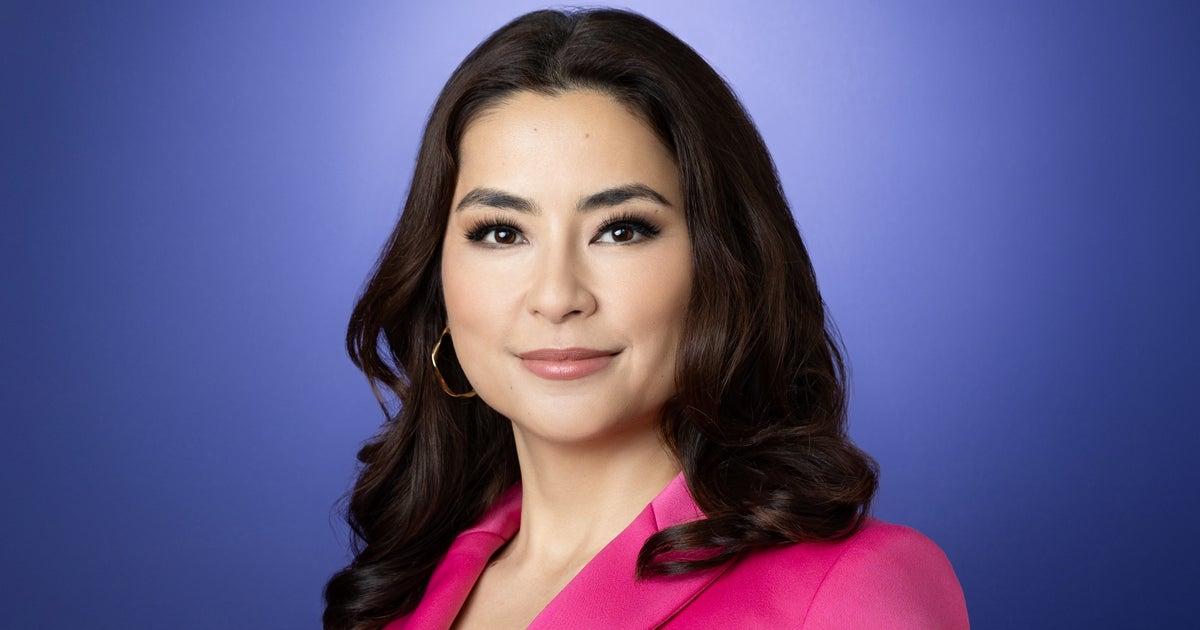“You kind of take what your parents do for granted when you’re a kid,” reflects Maya Rogers, president and CEO of The Tetris Company.
When her father, Henk Rogers, brought home an early version of Tetris on the Game Boy in the late 1980s, she remembers it sparking a sensation in their household, as family members competed against each other for high scores. But it was only much later on that she realised how big a deal the game was.
Henk was instrumental in securing the rights to Tetris for Nintendo’s handheld, and would go on to form The Tetris Company with the game’s creator, Alexey Pajitnov, in order to handle the licensing of Tetris around the world. Maya, meanwhile, was encouraged by her mother, Akemi Rogers, to seek a career in business. “She was all about climbing the corporate ladder.”
Maya initially worked at American Honda after college. But then she got the opportunity to combine her twin passions for cars and video games by securing a job at Sony Computer Entertainment in Santa Monica, initially working on the Gran Turismo franchise. “I remember thinking, ‘Wow, this is where I belong’,” she recalls.
.jpg?width=690&quality=70&format=jpg&auto=webp)
But her life took a sudden left turn when her father suffered a massive heart attack in 2005. “I flew back to Hawaii, and I was like, ‘I almost lost him’,” she recalls. “That was a turning point in my life to say, ‘Can I come work for you? I want to learn from you as much as I can while you’re still around’.”
Maya would go on to head The Tetris Company. Depressingly, even in 2025, it’s still rare to see a woman in the top job at a games firm. According to Women in Games, women make up only around 22% of the global workforce in the games industry, and hold just 16% of the executive roles in the top 15 game companies.
“It shouldn’t be that way,” says Maya. “Women need to be given a chance.”
She is passionate about getting more women into the industry. “There’s so many women playing games, and we’re still having mostly men designing games,” she says. “That doesn’t make any sense at all.”
She encourages young women to “follow their passion” and come into the business, and not be put off by thinking they’re under-qualified or lacking in experience when going for jobs.
“Men show up to the table and they’re kind of winging it, right? Guys are really good at winging it […]. Women show up overqualified, because they’re like, ‘Oh my gosh, am I good enough for the job?'”
In short, she says, “We’ve got to put ourselves out there, and be Okay to be vulnerable.”
“Men show up to the table and they’re kind of winging it, right?”
Maya Rogers, The Tetris Company
When we ask whether Maya has personally experienced any instances of sexism in the games industry, the answer is depressingly matter-of-fact: “Of course.”
“They see a youngish looking female, and they don’t believe you, or they don’t think that you run Tetris, or whatever,” she says. “But I guess it’s never really phased me.”
She adds that there are advantages, too, in standing out. “Everybody knows me, because I’m a girl, right?”
Maya has made a point of increasing the number of women working at The Tetris Company. “When my father was running the business, it was more male. And now we have a lot of women, and it’s great. We’re doing amazing things. Girls can do it all.”
Ultimately, she thinks we need more women in C-suite positions across the board, noting that DEI (diversity, equity, and inclusion) initiatives have helped in the past. “That in itself in America today is a thing that’s being questioned,” she adds, “but I think that was so important to have, because it did change how many people of diversity, [of] different backgrounds were allowed in the workplace.”
In short, she says, “there needs to be something that is almost enforced to make sure that there are enough women in the industry.” And those women who are already in powerful positions need to “be out there, being vocal, inspiring people to fight for their rights,” she says.
“It is always going to be a battle. But if you look at the history […], how do things change? It was the women [who] came together, and they fought for their rights, and that’s what needs to happen.”
Therapeutic Tetris
Maya is particularly keen to talk about the work of Professor Emily Holmes, currently at Uppsala University, who has been researching the effects of Tetris on mental health over the past 15 years or so.
“When she was at Oxford University, she started this research to try to see if Tetris can help with trauma and PTSD – and now she’s proven that in fact it can,” says Maya.
“So now we’re working more closely with Professor Holmes and trying to figure out the next steps of how we can make this really a thing […] that’s going to help people.”

Maya says that she has also heard from people with ADHD, who have said that playing Tetris helped them to focus before exams. “We’re starting to collect all these stories about how much Tetris has helped people in different ways,” she says. “I think we’re just scratching the surface of what is possible with video games and mental wellness.”
This finding that playing Tetris can actually be good for you is important, she adds, because “the video game industry gets such a bad rep,” not least through the recurrent conversations around video-game violence.
“Tetris has never been a violent game,” she stresses. “It has always been a game that’s for everyone.”
But what’s so special about Tetris that gives it these therapeutic properties?
“Clearing lines speaks to our innate desire to want to create order out of chaos”
Maya Rogers, The Tetris Company
“There’s something about the blocks: it’s a simple game, but it makes you think,” muses Maya. “There’s that something that clicks in you when you play Tetris and you get into that flow.”
“Clearing lines speaks to our innate desire to want to create order out of chaos,” she adds, “and essentially that feels good when we feel that sense of accomplishment. I think that’s the loop that really helps people with PTSD [or] trauma.”
Another subject that’s close to Maya’s heart is the environment, something she shares with her father. They founded Blue Startups in Honolulu around 13 years ago as an accelerator to help entrepreneurs, with an emphasis on supporting startups that are focused on sustainability.
“For example, one of the first companies that we invested in was a company called Volta, and they were making electric charging stations throughout the United States,” she says.
Brand new moves
But of course, these good-news stories don’t provide the whole picture. The Tetris Company was founded to protect the rights for Tetris, and as such the firm has spent much of the past few decades sending out endless cease-and-desist letters to Tetris imitators.
But Maya points out that the rights to Tetris were hard won, noting that Alexey Pajitnov wasn’t able to wrestle them away from the former Soviet Union until the nineties, and she thinks that the ability to protect copyright is becoming increasingly important in the context of the creator economy and the rise of AI.
“It’s important to protect and honour brand legacies and brands in general. If we don’t, everything becomes generic,” she says.
“There could be a million other copies out there, but there’s something to be said about the one, the original, the one that people can really relate to.”
Tetris has been constantly reinvented over the years through games like Tetris Effect and Tetris 99, and Maya says that in terms of licensing opportunities for the brand, video games are “always number one.”
But she also sees many opportunities outside games. “The people that play Tetris, whether [it was when they were] growing up or they’re just discovering it now, how do they want to engage with the brand? It’s not just through video games anymore.”

She highlights the recent Tetris movie on Apple TV as an example – although in fact there were efforts to get a Tetris film off the ground over a decade ago now, long before the current vogue for transmedia and big-screen video-game adaptations.
But what of the future for Tetris as a game? Surely, we suggest, we’ve had all the possible variations of falling blocks that it’s possible to have by now?
Maya disagrees. “I think Tetris Effect is a perfect example of [how you can] iterate on a game that’s 40 years old, and make it cool, and make it something that connects you to a new audience.”
That said, she also recognises that way back in the mid-eighties, Alexey Pajitnov essentially came up with the perfect game. “It’s like the game of chess, it’s going to be around. It’s just a matter of making sure that [for] each generation, and each new platform, and each new way to play a video game, Tetris is there.”
And Pajitnov, along with Henk, is still keeping an eye. “They’re involved in all the major decisions,” confirms Maya. “And whenever it comes to game design, Alexey is very heavily involved, because he’s still a gamer. He’s still playing all the games, he still thinks like a programmer. That’s what he does, and that is his passion.
.jpg?width=690&quality=70&format=jpg&auto=webp)
“So as long as they’re able to get involved, they will be involved. And it’s great, because sometimes we might have a new licensee or a new developer come on board, and we might have Alexey come and talk to them. And for them, it’s like seeing God.”
When all is said and done, it’s heartening to think that behind the corporate behemoth that Tetris has become is the story of an enduring yet unlikely friendship.
“Henk and Alexey, they’re like two people that are as different as can be,” says Maya, “but they have this common language, and they believe in each other, and they trust each other.
“And this is one of the reasons why Tetris has been successful. It was based on this handshake of these two men that came from very different backgrounds – and they trusted each other because they loved games and they’re both programmers. And that love and that relationship is still there today.”



